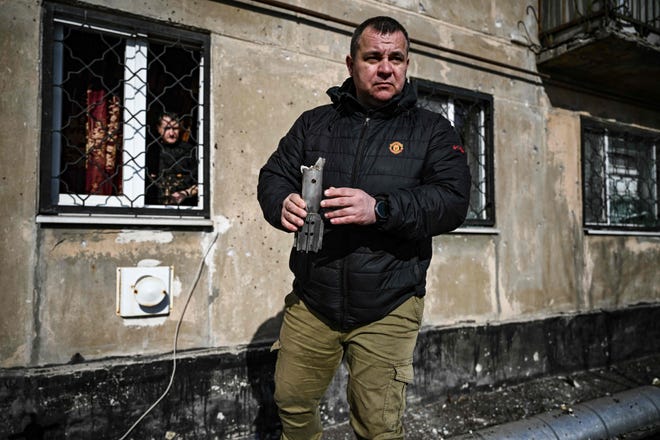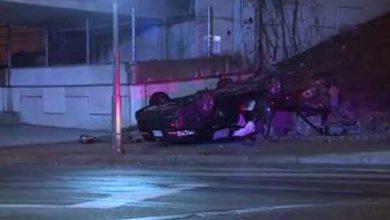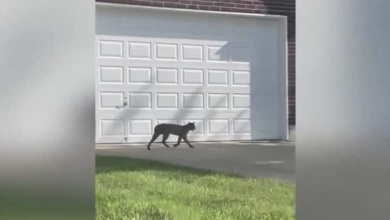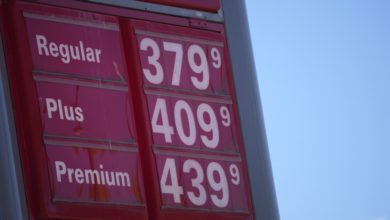
- German chancellor says the government will 'reassess' certification of Nord Stream 2.
- UN Security Council holds emergency session, noting 'risk of major conflict is real.'
- Blinken will meet with Ukraine's foreign minister Tuesday in Washington.
Western allies levied significant response on Russia’s actions against Ukraine on Tuesday, as world leaders denounced President Vladimir Putin's actions in eastern Ukraine.
As the Kremlin laid the groundwork to roll troops into two breakaway regions, Germany announced it was preparing to bring the Nord Stream 2 gas pipeline to a grinding halt.
A day after Putin declared Moscow would recognized the independence of Donetsk and Luhansk, Russian lawmakers ratified the arrangement, allowing for the Kremlin to provide military support there.
Putin had ordered troops Monday to "maintain peace" in the provinces shortly after recognizing the Russian-backed areas as independent, stoking fears that a Russian invasion could be coming soon.
Convoys of armored vehicles were seen rolling across the separatist-controlled territories late Monday. It wasn’t immediately clear if they were Russian.
World leaders condemned Putin's actions, and consequences from the U.S. were swift.
President Joe Biden signed an executive order in short order on Monday to sanction any Americans who invest in the eastern Ukraine regions, with a promise of more to come.
“We plan to announce new sanctions on Russia tomorrow in response to Moscow’s decisions and actions today,” a White House spokesperson confirmed late Monday night.
More:The enigma of Vladimir Putin: What do we really know about Russia's leader?
Nord Stream 2 halted
German Chancellor Olaf Scholz said his government would “reassess” the certification of the Nord Stream 2 pipeline, which hasn’t begun operating yet.
The $11 billion, Russian-owned natural gas pipeline snakes westward from Russia to northeastern Germany for more than 700 miles under the Baltic Sea. The pipeline was launched in 2015 and follows a similar route to another pipeline, Nord Stream 1, which was completed in 2011.
Owned by Gazprom, a Russian state-controlled company, Nord Stream 2 was completed last year and has the capacity to handle 55 billion cubic meters of gas per year once it becomes operational.
The decision is a significant move for the German government, which had long resisted pulling the plug on the project despite pressure from the United States and some European countries to do so.
Scholz said that the government had decided to “reassess” the certification of the pipeline, which hasn’t begun operating yet, in light of the latest developments.
Germany meets about a quarter of its energy needs with natural gas, a share that will increase in the coming years as the country switches off its last three nuclear power plants and phases out the use of coal. About half of the natural gas used in Germany comes from Russia.
More:How the Nord Stream 2 pipeline became a bargaining chip in the crisis between Russia and Ukraine
UN Security Council meets in emergency session
The U.N. Security Council held an emergency meeting Monday night at the request of Ukraine, the United States and six other countries, including Russia, which holds the rotating council presidency.
Undersecretary-General Rosemary DiCarlo opened the session late Monday with a warning that “the risk of major conflict is real and needs to be prevented at all costs.”
U.S. Ambassador Linda Thomas-Greenfield said Putin “has put before the world a choice” and it “must not look away” because “history tells us that looking the other way in the face of such hostility will be a far more costly path.”

More:Putin orders troops to two Ukraine regions after declaring their independence
Ukraine’s U.N. ambassador demanded that Russia cancel its recognition of the independence of the separatist regions in the east, immediately withdraw its “occupation troops” and return to negotiations.
Russia’s U.N. ambassador, Vassily Nebenzia, said Putin acted in response to Ukrainian aggression. He said Russia was open to diplomacy but wouldn’t allow “a new bloodbath in the Donbas."
China’s U.N. Ambassador Zhang Jun called for restraint and a diplomatic solution to the crisis.
Blinken to meet Ukrainian counterpart
Ukraine’s President Volodymyr Zelenskyy sought to project calm, telling the country in an address overnight: “We are not afraid of anyone or anything. We don’t owe anyone anything. And we won’t give anything to anyone.”
His foreign minister, Dmytro Kuleba, will be in Washington on Tuesday to meet with Secretary of State Antony Blinken, the State Department said.

Putin recognizes Donetsk, Luhansk
In a lengthy speech on Monday, Putin justified his decision to recognize the independence of the Russian-backed separatist regions Luhansk and Donetsk. He blamed NATO for the current crisis and called the U.S.-led alliance an existential threat to Russia.
Putin directly threatened pro-democracy activists and civil servants who had led the pro-democracy push in the country after the 2014 revolution ousting a pro-Russian government.
"We know their names, and we will find them and bring them to justice,” he said.
The Russian president also claimed, without evidence, that Ukraine was preparing to develop its own nuclear weapons that could threaten Russia.
Contributing: Courtney Subramanian, Matthew Brown, Joey Garrison, USA TODAY; Associated Press
Source link









